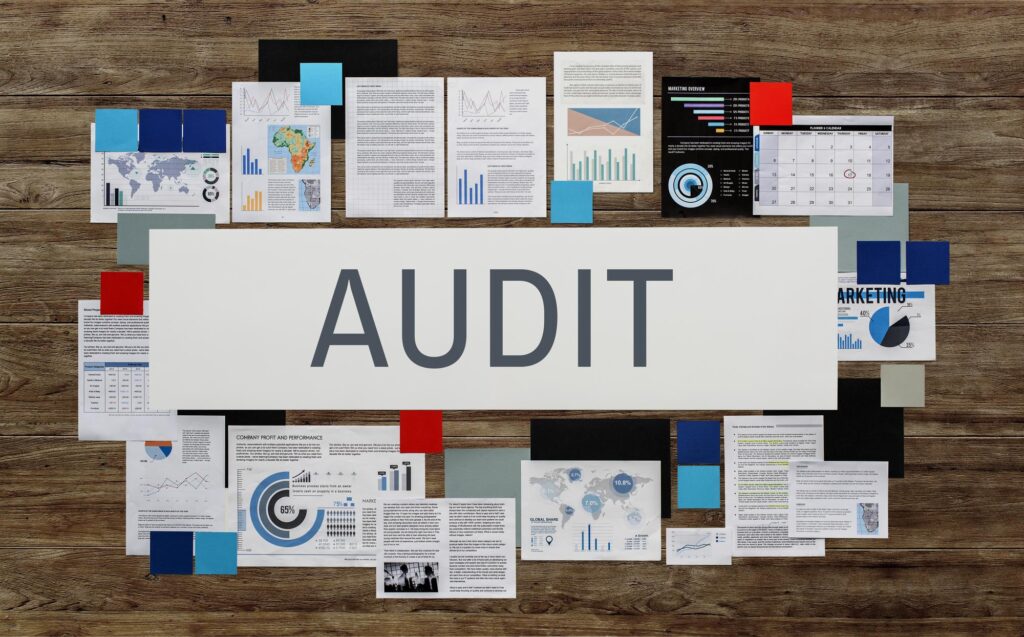The Integrity Of The Procurement Process
It is essential that all bidders on government contracts have equal access to any information needed to put together a comprehensive bidding package. A company that is bidding on a federal contract may not receive information that is not public in order to provide an unfair competitive advantage in the field. This includes things like an innocent email accidentally going to the wrong person.
Have A Clear Understanding Of The Government’s Accounting Requirements
The Financial Accounting Standards Board (FASB) states that contractors must comply with the following in order to work with the government:
- Federal Acquisition Regulations (FAR)
- Cost Accounting Standards
- FAR agency supplements
Understanding Audits

Your company should be clear on what the DCAA considers the responsibilities of federal contract actors. They include the following:
- timeliness of payments to subcontractors
- documentation of contractor oversight of subcontractors
- documentation of enforcement of flow downs
- documentation of support for subcontractor billings
- documentation of subcontractor reviews
Surprise Audits

Government audits can occur without any type of advance notice. Contractors must always be prepared in order to receive a solid evaluation.
A surprise audit that reports non-compliance with federal accounting regulations can have a lot of negative consequences. This could include termination of the contract and payments can be withheld unless improvements are in place. This can be very time-consuming and stressful. This can also severely affect opportunities for future business with the government.
Keeping Ahead of Technological Innovations

Keeping pace with stringent government accounting policies allows a company to truly understand governmental purposes, needs, and larger processes, and then use that knowledge to best manage and methodically grow the company. Luckily today there are many cutting-edge technologies that can take the pressure off by making even the most complex accounting procedures quite simple. These innovations help a contractor comply with government requirements, permitting employment of systems for management and growth while adapting to keep in step with ever-incoming changes in requirements. Also, having a strong accounting system in place will only make your company better in the long run.
Rules Of Timekeeping And Accounting
Government contractors have to maintain very strict schedules when compared to the private sector. Your business must comply with a set standard of rules and regulations when reporting on how many hours worked in a certain period.
The Financial Accounting Standards Board (FASB) states that contractors must comply with the following to work with the government:
- Federal Acquisition Regulations (FAR)
- Cost Accounting Standards
- FAR agency supplements
DCAA Approval
The Defense Contract Management Agency (DCMA) helps define business systems requirements and provides direction on audits and approval criteria. Potential government contractors need to understand this agency as they define the approval criteria for awarding contracts. They also have a strong hand in guiding government audits. Speaking with them will help you with the following:
- direct and indirect cost segregation
- cost pools and allocation bases
- timekeeping
- labor distribution systems
- maintaining compliance with invoicing clauses
- avast and ever-changing complex of other issues
Simplified Procedures
In 1994 the Federal Acquisition Act FASA simplified the buying procedures of the government.
Many of the more harsh restrictions on government purchases were removed for any purchase that was less than $100,000. Now agencies used much simpler procedures for analyzing and soliciting bids up to the $100,000 amount. However, the government is still required to advertise all purchases over $25,000 at www.fbo.gov.
These simplified procedures mean that approval levels are lower, there is much less documentation, and administrative details are not as complex. The government now has to reserve purchases that are between $2,500 and $100,000 for small businesses. The exception is the contracting officer cannot obtain offers from two or more small businesses that are competitive in price and quality
Purchases that do not exceed $2,500 individually or through the combination of multiple items are considered micro-purchases. These do not require competitive quotes but are not limited to small businesses. Micro-purchases are often made using government-issued purchase cards or typical credit cards.
Contracting Officers
The Federal Government always conducts any kind of procurement business through contracting officers. These contracting officers have the authority to bind the government to a contract unless it is otherwise stated in writing. Make sure that the person you are dealing with is the contracting officer who is authorized to represent the agency or office that is going to award the contract.
Procurement
Government procurement has always been a part of advancing many national, economic, and social objectives. Government contractors must comply with the rules and regulations of labor standard statutes. This will include the Service Contract Act, Contract Work Hours and Safety Standards Act, and other statutory requirements that further socio-economic objectives, except for certain contracts where such legislation is specifically stated as non-applicable.
Bidding
The government usually makes sure contracts are competitive through the use of sealed bidding. First, the agency makes sure that its requirements are accurate and complete. Then an Invitation For Bid or IFB is issued. The IFB will describe the type of product or service that is being procured by the government. It also includes:
- Preparation Instructions
- Conditions of Purchase
- Packaging
- Delivery
- shipping
- The payment with contract clauses to be included
- Submission Deadline
The sealed bids are opened in public at the purchasing office at the time designated in the invitation.
The System for Awards Management or SAM Directory

The absolute first thing that you must do in order to qualify for government contracting jobs is to register with the federal government supplier database, which is called the System for Award Management or SAM, for short.
This allows you to be certified by the Small Business Administration (SBA). This gives you the Dun & Bradstreet Number (DUNS Number). Your business size will be determined to see if you qualify for the specific set aside government contracts. You will also identify Your North American Industry Classification System. Please see our many informative blogs to find out everything you need to know about SAM for small Businesses, to get an in-depth look at what is needed for lucrative federal contracting opportunities.